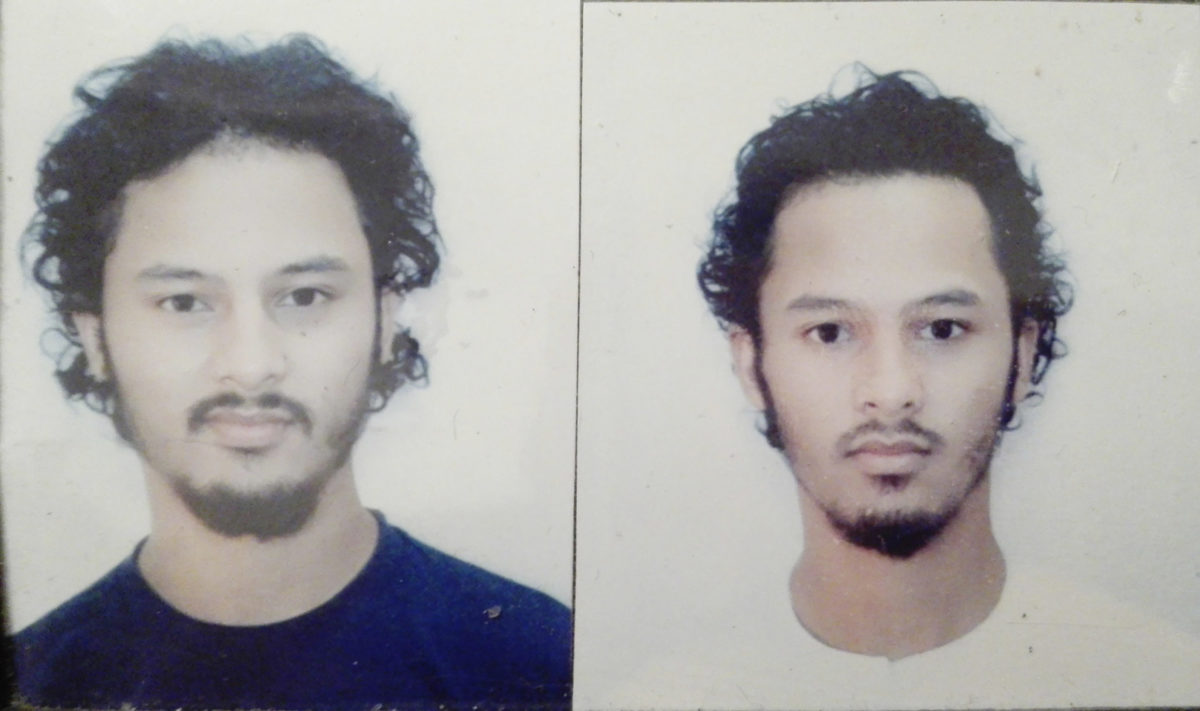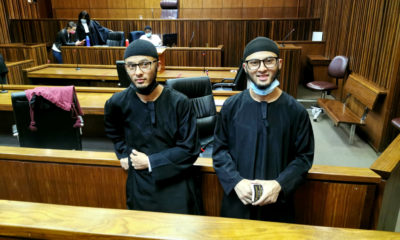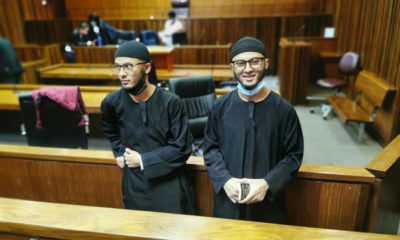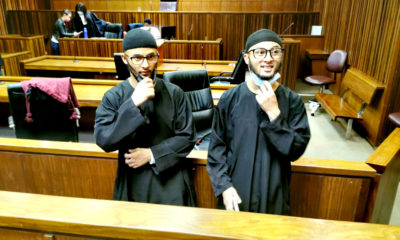
News

Judge puts stop to delay in Thulsie twin trial
Published
3 years agoon
When the Thulsie twins, Tony-Lee and Brandon-Lee, were arrested in 2016 for allegedly planning terrorist attacks on Jewish and other institutions and individuals, it was hoped justice would be swift. But five years later, they remain behind bars, awaiting trial.
This week, the presiding judge put a stop to the endless delays when he criticised both sides for dragging out the proceedings for half a decade.
“I’m not inclined to give any postponement until next year. That’s unacceptable,” said Judge Ramarumo Monama. “What I’m trying to alert or revive is that we aren’t only dealing with the niceties of the law, we’re dealing with the essence of the survival of the rule of law if these people can be kept in custody for that long. So, for that reason, I was not going to entertain any application for this matter to be postponed to next year. It’s preposterous to make such an order,” he said.
The twins were arrested in a 2016 raid in Gauteng. Authorities allege they are linked to the Islamic State (ISIS) group.
In the official indictment filed in the Gauteng High Court in August 2018, “the said terrorist activities would have been perpetrated using firearms, explosives, and possibly poisons, and would have been directed against cartoonist Zapiro, a Jewish South African investment manager, Telfed, King David High School Linksfield, Jewish community events, and conferences as yet not more specifically identified by the accused”. They also planned to direct their enmity on other “individual South African Jews and Jewish entities followed on Twitter, and a Jewish event identified on the Habonim website”, as well as other targets, according to the indictment.
On Thursday, 30 September, state prosecutor Advocate Adele Barnard informed Monama that the defence had requested a postponement to March 2022, according to News24. It was at this point that the judge put his foot down.
A trial date was set for January this year, but the defence launched an application to have the matter thrown out of court, arguing that there were irregularities in how the matter was transferred to the High Court in 2017. In July, the court dismissed their application, as well as their application for leave to appeal. Their lawyers have taken the dismissal of leave to appeal to the Supreme Court of Appeal, where it’s yet to be heard, which affects the continuation of the matter in the High Court. Last week, Barnard said the state had been ready to proceed with the matter since January. Monama said he would postpone the matter for only a month.
What does it mean for the Jewish community that the trial is being delayed for so long?
“There is little doubt that the ongoing delays in this case are frustrating and concerning,” says Community Security Organisation head of operations in Gauteng, Jevon Greenblatt. “We would like to see justice done, and if they are found to be guilty, it’s important that a strong precedent is set. Should this case be thrown out due to delays, it could embolden and encourage like-minded individuals to follow in the footsteps of the Thulsies, and next time, we may not be as lucky.
“Should justice not be seen to be done, the potential exists to create a more permissive environment for future terror attacks in South Africa,” says Greenblatt. “Without a real risk of getting caught and strong consequences to follow, there’s no real deterrence.
“What we do know for certain is that there are ISIS adherents operating in South Africa, and we see evidence to suggest that these individuals and cells exist across the country,” he says. “There is some evidence and mounting speculation that many are actively co-ordinating and co-operating with one another in what at best can be described as a loose network and in the worst-case scenario, an organised terror infrastructure.
“In addition, the rise of ISIS [and Al Qaeda] across sub-Saharan Africa, and particularly relevant to us, in Mozambique, is inspiring and emboldening local adherents of radical Islamic terror ideologies,” Greenblatt says. “It’s also important to remember that ISIS officially warned the South African government to stay out of the conflict [in Mozambique], or it would directly target South Africa. I don’t believe these threats were made idly. It’s clear that they have some form of infrastructure already established in South Africa to act on these warnings. Finally, we already suspect that there are connections between local adherents and the Mozambican insurgents, including a number of South Africans that have gone across to join the fighting. Some of these have documented, direct links to the Thulsie twins.”
Says Greenblatt, “It has been published in various press articles that the Thulsie twins and their cell weren’t acting alone. They had connections to and were interacting with international ISIS-linked individuals. We also know that the case spans many continents, possibly including players much higher up the ISIS chain of command. That would mean that if this trial does go ahead, it could expose larger networks and individuals across the globe. This may be one reason why the twins’ defence appears to be stalling and possibly even sabotaging the case.
“As to why there have been delays from the state’s side, I cannot say, other than the possibility that in a case as high profile and consequential as this one, they have to make sure that every “I” is dotted and “T” is crossed in order to get the best possible outcome and to prevent the case from being thrown out or incorrectly judged due to an avoidable error,” he says. “Part of the delays may also have been caused by the long processes around international co-operation with law-enforcement agencies in other jurisdictions who have a material interest in this case and the broader links exposed in the investigations.
“Regardless of what happens in this trial, many experts agree that the South African environment is conducive to acts of terror and a comfortable environment for extremist groups to operate in,” Greenblatt says. “Their existence is well-documented, and they have already carried out a number of ideological attacks or attempted attacks within our borders. We, as a society and especially as a community, need to be vigilant and invest in measures, systems, and structures to prevent or in a worst-case scenario, mitigate this very real threat. That takes funding, time, planning, and effort. We have acted proactively rather than waiting for something to happen and only then reacting.”
The matter will be back in court on 29 October.










